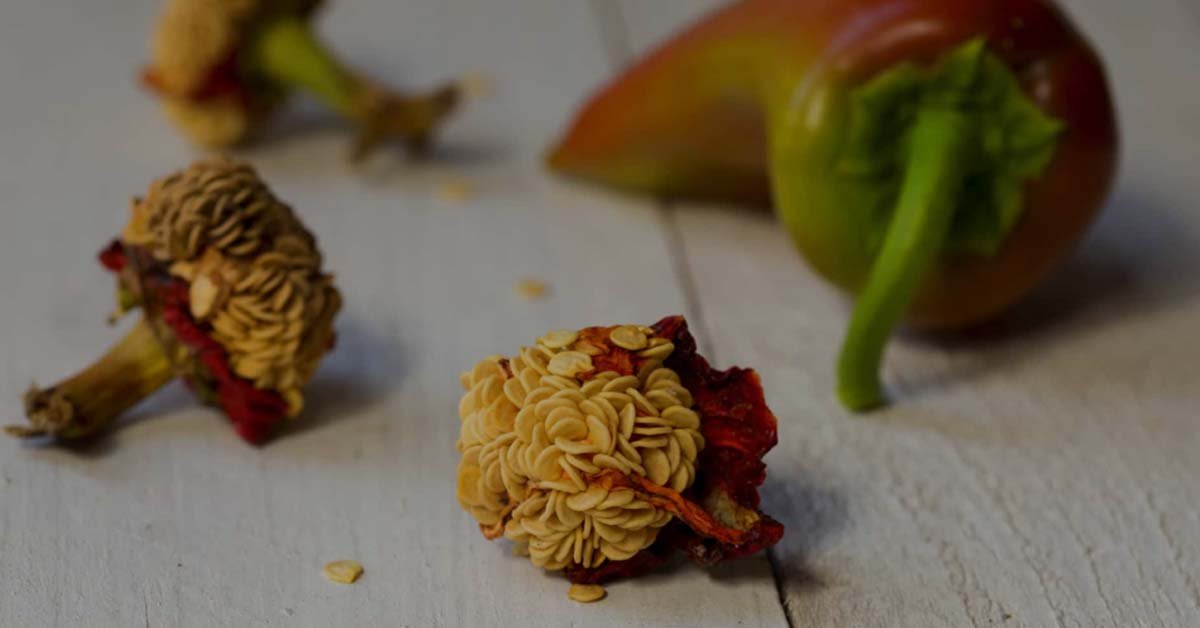This Article is Approved By » Esther Howard (Nutritionist)
Whether dicing bell peppers for a vibrant salad or roasting them for smoky salsa, you’ve likely encountered their tiny green seeds. But have you ever considered eating them?
Many discard them without a second thought, but are pepper seeds good for you? Let’s delve into the fascinating world of pepper seeds and explore their potential health benefits and drawbacks.
Are Pepper Seeds Good for You?
Pepper seeds hold some potential benefits. They contain fiber, vitamins, and minerals and might even aid digestion and reduce inflammation.
However, research is limited, and some can find it challenging to digest.
Ultimately, they’re safe for most to eat in moderation, but individual tolerance and potential digestive discomfort should be considered.
Are Pepper Seeds Safe to Eat?
The short answer: Yes, pepper seeds are generally safe to eat for most people. They don’t contain any toxins or harmful substances.
They harbor a surprising amount of valuable nutrients! This applies to most pepper varieties, including bell, chili, and jalapenos (minus the fiery heat).
However, there are a few caveats to consider:
- Digestive discomfort: Some people might experience mild digestive issues like bloating or gas after consuming large quantities of pepper seeds. This is because they contain a good amount of fiber, which some might find hard to digest.
- Choking hazard: For young children and individuals with swallowing difficulties, pepper seeds’ slight, hard texture might pose a choking hazard. Exercise caution and opt to remove them if necessary.
- Heat concerns: While bell pepper seeds are mild, chili pepper seeds pack a spicy punch due to capsaicin, the heat-producing compound. Avoid removing or consuming them in moderation if you’re sensitive to spice.
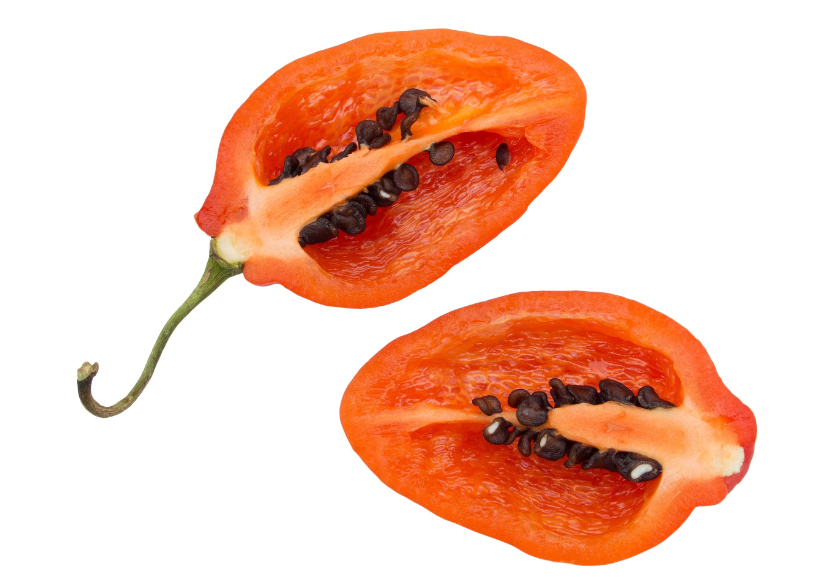
What’s Inside Pepper Seeds? Nutrition
Pepper seeds aren’t just empty vessels. They’re surprisingly packed with a diverse range of beneficial nutrients, including:
- Fiber: A champion for digestive health, fiber keeps you feeling full and promotes regularity. Bell pepper seeds, in particular, boast a healthy dose of insoluble fiber, essential for gut health.
- Minerals: Pepper seeds are a good source of essential minerals like iron, magnesium, and potassium. These minerals are crucial in various bodily functions, from oxygen transport to muscle function and nerve transmission.
- Vitamins: Bell pepper seeds offer a decent amount of vitamin E, an antioxidant that protects cells from damage. Some chili pepper seeds also contain vitamin C, which is vital for immunity and collagen production.
- Healthy fats: Pepper seeds contain a small number of unsaturated fats, particularly linoleic acid, which helps reduce inflammation and promotes heart health.
While research on the exact nutritional profile of pepper seeds is ongoing, these tiny powerhouses offer a surprising dietary punch.
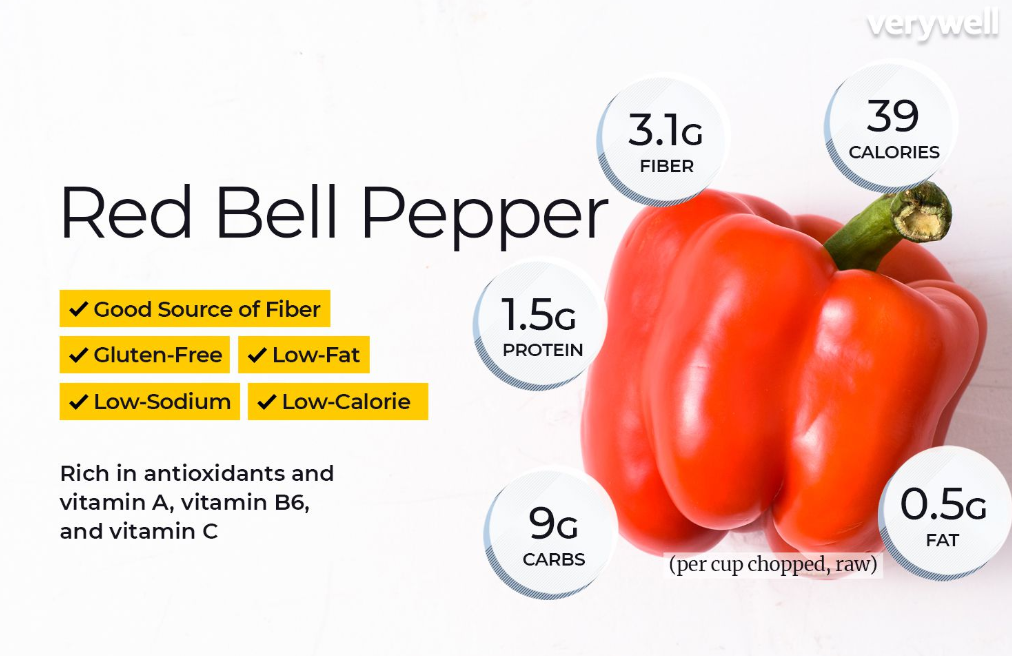
Weighing the Pros and Cons
Now that you know the facts, should you incorporate pepper seeds into your diet? The decision ultimately depends on your preferences and individual health concerns.
Potential Benefits of Pepper Seeds
- Added nutrition: Eating pepper seeds can boost your intake of fiber, minerals, vitamins, and healthy fats.
- Zero waste: No more discarding a potentially nutritious part of the pepper!
- Convenience: No need for additional steps like deseeding, especially when using the peppers in cooked dishes.
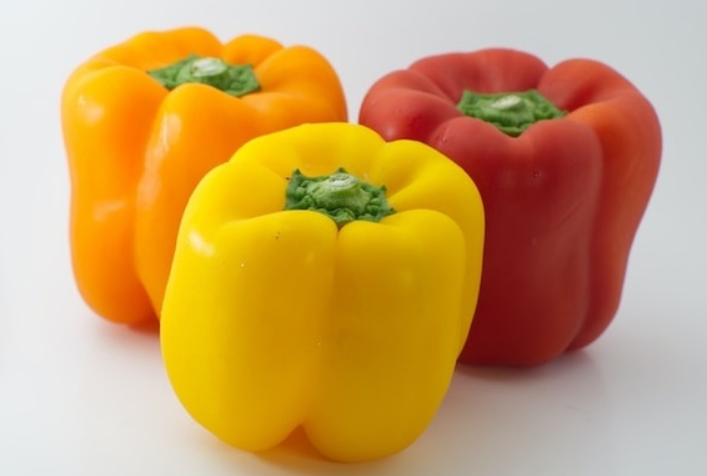
Drawbacks of Pepper Seeds
- Digestive discomfort: The fiber content might lead to bloating or gas for some individuals.
- Choking hazard: Be mindful of young children and those with swallowing difficulties.
- Heat factor: Spicy pepper seeds can bring unexpected heat; adjust according to your spice tolerance.
Ultimately, the choice is yours. If you’re curious and don’t have any specific health concerns, try incorporating pepper seeds into your diet gradually and monitor your body’s response.
Creative Ways to Enjoy Pepper Seeds
So, you’re on board with giving pepper seeds a try! Here are some fun and flavorful ways to incorporate them into your meals:
- Blend them into smoothies: Toss a few bell pepper seeds into your morning smoothie for a subtle fiber and nutrient boost.
- Sprinkle them on salads: Roasted or raw, and they add a delightful crunchy texture and a hint of earthy flavor.
- Incorporate them into dips and spreads: Blend them into hummus, guacamole, or salsa for a unique textural and nutritional twist.
- Use them as a seasoning: Grind dried pepper seeds to create a flavorful spice blend for soups, stews, or roasted vegetables.
- Bake them into cookies or bread: For adventurous bakers, experiment by adding finely ground pepper seeds to baked goods for a surprising nutritional kick.
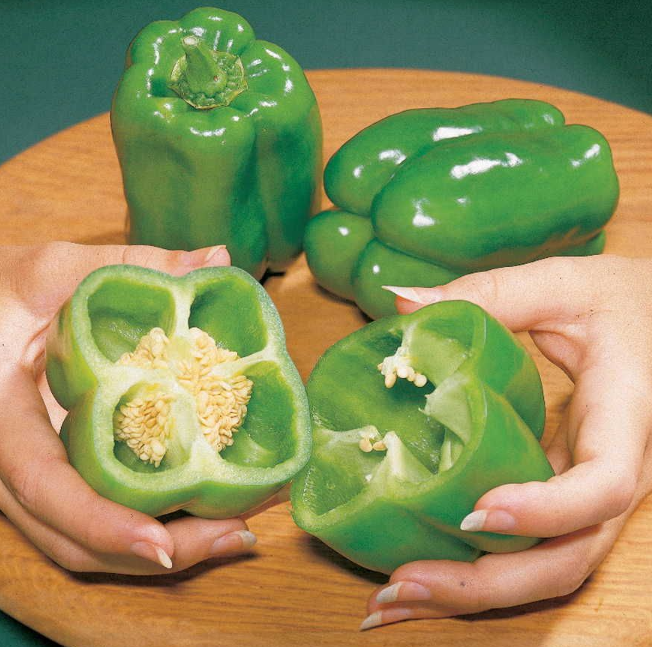
Remember, moderation is key. Start with small amounts and increase gradually based on your tolerance.
Exploring the Health Benefits of Peppers
While pepper seeds offer attractive nutritional potential, remember the health benefits of the peppers themselves!
Packed with vitamins, antioxidants, and phytonutrients, peppers provide a diverse range of health benefits, including:
- Supporting immune function: Rich in vitamin C, peppers can help boost your immune system and fight infections. Bell peppers, mainly, are superstars regarding vitamin C content, even exceeding the amount found in oranges!
- Reducing inflammation: Peppers contain various antioxidants and anti-inflammatory compounds like capsaicin (in chili peppers) and quercetin (in bell peppers).
These can help combat chronic inflammation linked to multiple health conditions like heart disease and arthritis. - Promoting heart health: Peppers’ fiber, vitamins, and minerals contribute to heart health in various ways. Fiber helps lower bad cholesterol, while potassium supports healthy blood pressure.
Additionally, certain peppers like habaneros contain capsaicin, which may improve blood flow and reduce blood clotting risk. - Boosting eye health: Bell peppers, especially red and orange varieties, are rich in beta-carotene, which converts to vitamin A in the body. Vitamin A is crucial in maintaining healthy vision and preventing age-related macular degeneration.
- Aiding digestion: The fiber content in peppers promotes gut health by aiding digestion and preventing constipation. Some peppers, like jalapenos, contain prebiotics, which nourish good gut bacteria and improve digestive well-being.
- Adding vibrancy to your diet: Let’s remember the visual appeal! Peppers come in a rainbow of colors, offering unique nutrients and antioxidants. Adding them to your diet increases its nutritional value and creates visually stunning and delicious dishes.
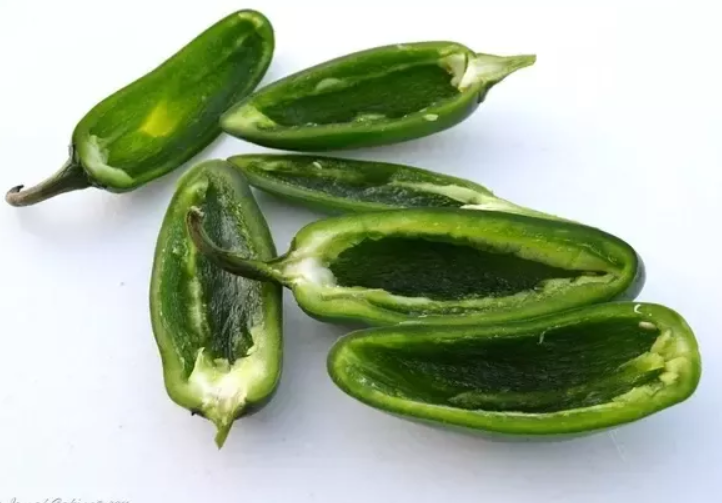
Remember: While peppers offer many health benefits, moderation is key. Consult your doctor if you have concerns or medical conditions before increasing your pepper intake significantly.
Should You Eat Pepper Seeds or Not?
Whether you embrace the tiny nutritional gems within or enjoy the vibrant flesh of the pepper, incorporating these versatile vegetables into your diet is a delicious and healthy choice.
So, don’t shy away from experimenting and discovering the many ways to savor the power of the pepper!
FAQs About Pepper Seeds
Now that you’ve delved into the world of pepper seeds, you might have some lingering questions. Let’s address some common FAQs to help you make informed decisions:
Are all pepper seeds safe to eat?
Yes, most pepper seeds are generally safe for consumption. However, exercise caution with children and individuals with swallowing difficulties due to the choking hazard.
Also, be mindful of spicy pepper seeds if you have a low tolerance for heat.
Do pepper seeds offer any nutritional benefits?
Absolutely! These tiny seeds pack a surprising punch of fiber, minerals like iron and magnesium, vitamins like E and C (depending on the pepper variety), and healthy fats.
Can eating pepper seeds cause digestive issues?
For some individuals, the high fiber content in pepper seeds might lead to mild bloating or gas, especially when consumed in large quantities. Start gradually and monitor your response.
Do I need to remove pepper seeds before cooking?
It’s entirely up to you! In cooked dishes, the seeds often soften and become less noticeable. However, removal is an option if you dislike their texture or heat (like spicy peppers).
What are some creative ways to enjoy pepper seeds?
Blend them into smoothies, sprinkle them on salads, bake them into cookies or bread, or use them as a unique seasoning for soups and stews.
Should I prioritize eating the pepper flesh or the seeds?
Both offer valuable nutrients! The flesh boasts vitamins, antioxidants, and phytonutrients, while the seeds provide a concentrated dose of fiber and specific minerals. Enjoy them together for a well-rounded nutritional boost.

